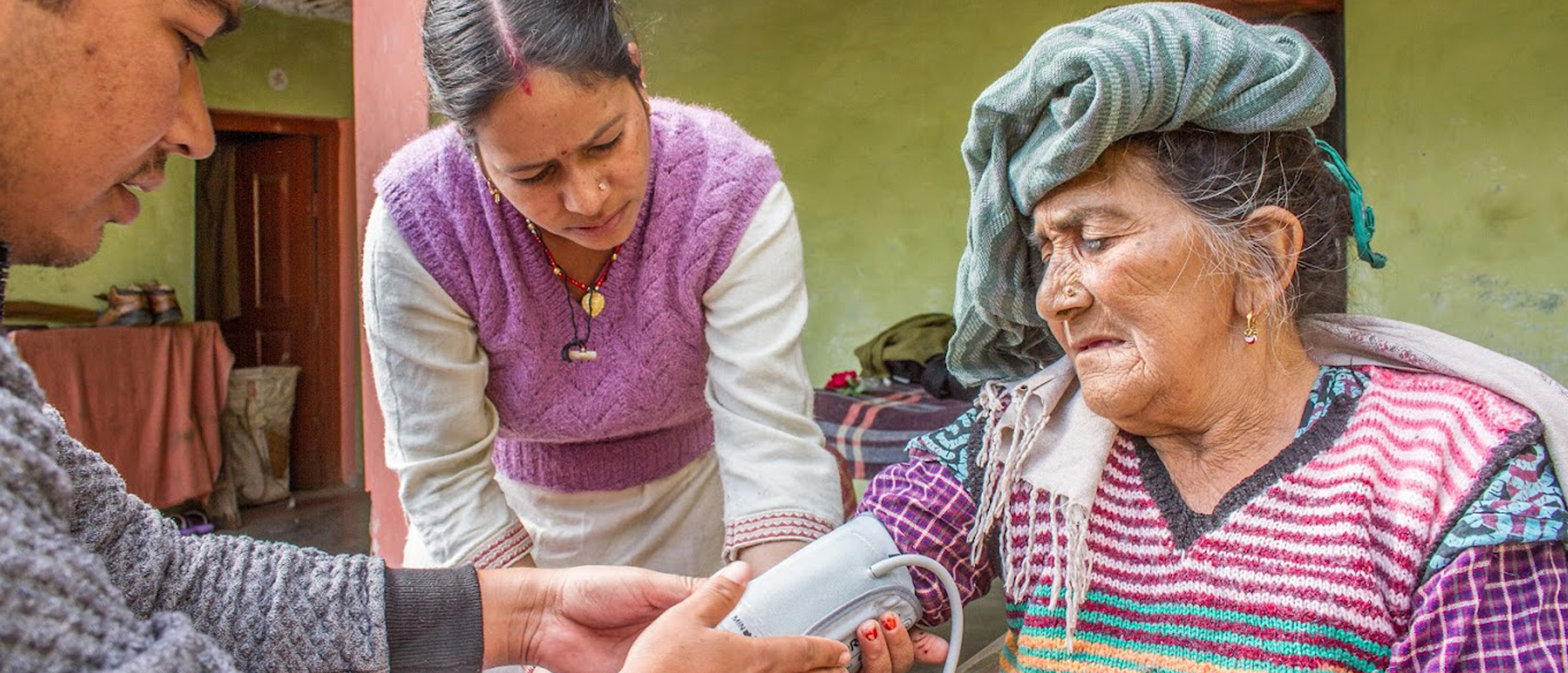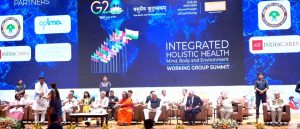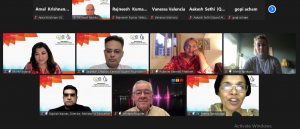In this webinar with the Integrated Holistic Health Working Group (IHH), renowned integrated holistic health experts shared an introduction to various topics surrounding public health and what’s next in healthcare. The theme was integrated holistic health in relation to public health issues in civil society. Experts touched upon focus areas to be workshopped during the next six months by IHH.
The goal of the series is to spark an interest in people to join the conversation surrounding global health and help to illuminate ways in which each one of us can contribute to positive reform and growth within the civil sector. Hopefully, C20 can bring a global perspective and shine light on people’s aspirations for holistic health delivery. The challenge of the future is to figure out how to integrate complementary medicine to conventional practices.
Dr. K. Srinath Reddy – Cardiologist, Public health expert and Founder/President of the Public Health Foundation of India
Noncommunicable Diseases
Noncommunicable diseases (NCDs) include cardiovascular diseases (heart attacks, strokes, peripheral vascular disease), as well as cancers, diabetes, chronic respiratory diseases, livers, and kidney diseases. These accounted for 75% deaths in 2020 and are of vital importance at the policy level and for focus on community action.
NCDS are causing premature deaths mainly in low and middle income countries for people age 30 to 69 years old, and the poor are the most vulnerable victims. However, these illnesses also affect the entire lifespan from children to elderly. The driving factor includes tobacco exposure, hypertension, lack of physical activity, unhealthy diet, air pollution, lack of adequate sleep, stress. These are conditioned by socio-economic factors.
The target for C20 policies to mitigate these issues includes the need to control risk determinants that lead to these diseases early in life course, by focusing on action at the policy level with a health workforce, especially in primary care.
This includes programs to identify NCDs early, given dire consequences of neglect; community engagement to provide and improve health and nutrition literacy/knowledge; ensure proper monitoring so these programs are successfully implemented; policies that encourage people to make healthy choices by removing socio-economic barriers; and policies that control commercial determinants of health, such as tobacco exposure, processed food consumption in diet, etc.
We need to develop a holistic understanding of health and develop policies with the understanding that there is a connectivity between our bodies and the environment, from our pulse to our planet. Hopefully we can develop policies that will lower the burden of NCDs and death/disability in early to mid-life.
Dr. Narendra Kumar Arora – Pediatrician, Head of Department of Pediatrics at All India Institute of Medical Sciences, New Delhi, Executive director of INCLEN Trust International
Implementation of Science
There is a need to focus on the implementation of science. Many gains for low/middle income countries have been lost in the last few years due to pandemic. We have many proven interventions for health available, but have not developed tools implement them. In low/middle income countries, we should focus on developing tools to implement interventions using our manpower, money, and resources in the best possible manner.
We also need to focus on redesigning child and maternal health. Instead of just focusing on 2-5 years of life, we should focus on the missing middle—children aged 5-18 years old. This is a prime age where we develop the foundation for our lifestyles. We need to develop a system to communicate with this missing middle about health and wellness, when they are in formative years. We need build continuity between mothers and the children as well.
Dr. Kamala Krishnaswamy – Physician, Former Director of National Institute of Nutrition, Associated with Madras Diabetic Research Foundation, and Former President, Nutrition Society of India
Food-based requirements
We can implement a food-based requirement framework with dietary guidelines for knowledge to be widely distributed, perhaps utilising implementation science to help prevent NCDs. Minimally processed food products and fruit/veggie consumption are both inversely proportional to the risk of NCDs, including hypertension and diabetes, respectively.
The essential aspects of healthy diet is the knowledge that needs to be widely imparted. This includes the importance of eating nonglycemic carbohydrates, good quality proteins and increasing protein consumption, good quality fats, vegetables/fruit for phytonutrients and fibre, as well as eating unprocessed or minimally processed foods and fortified foods. Additionally, we should keep focus on lowering salt, sugar, and fatty snacks, and emphasizing need for adequate water intake.
As well, the food industry can try to make low salt/sugar/low processed foods and we also need to stress physical activity alongside health diet and lifestyle.
Dr. TV Sekhar – Professional Head at Department of Family and Generations International Institution of Population Studies, Mumbai
Health challenges in India for the elderly
The share of our elderly population is increasing to 20% (320 million elderly in 2050), and life expectancy has doubled now. Dramatic demographic shifts show we will experience inevitable and large challenges, especially with the burden/prevalences of multiple morbidities/NCDs that are already currently being largely underdiagnosed.
Another key issue is mental health which has been largely neglected, especially depression (leading cause of morbidity, mortality, dementia), with very low treatment rates for psychiatric and neurological illnesses compared to other diseases.
The problems are compounded by a low rate (less than 20%) of health insurance coverage and driving higher poverty rates when the situation such as mental health treatment necessitates out of pocket health expenditures. We need to focus on policies that ensure elderly citizens live with dignity, safety, and health.
Dr. Omesh Kumar Bharati – Principle and State Epidemiologist at Institute of Family Welfare in Himachal Pradesh and known for his pathbreaking work in the field of Rabies
A Multidisciplinary Approach to Implementing Policies
Holistic Health cannot be achieved without One Health, an approach that recognises that the health of people is closely connected to the health of animals and our shared environment. One Health is not new, but it has become more important in recent years. This is because many factors have changed interactions between people, animals, plants, and our environment. For example, we cannot eradicate rabies without vaccinating dogs,
The Covid pandemic showed us all that species affect each other, from animals to humans to plants and vice versa. We need to collaborate with veterinarians, environmentalists, etc in a multidisciplinary approach to achieve holistic health.
Dr. P Rammanohar – Director at Amrita Center for Advanced Research in Ayurveda, Amrita School of Ayurveda
There is a need to focus on the importance of preventative health rather than curative treatment in order to encourage positive states of health. NCDs account for 75% global morbidity and require palliative care, as well as treatment approaches that integrate traditional medicine effectively.
The World Health Organisation (WHO) predicts 80% of people use traditional medicine, which comes mainly from China, India, Africa. Traditional Medicine, such as Ayurveda, homeopathy, Naturopathy, etc emphasise patient-focused preventative care. It has the potential to strengthen the concept of a holistic approach to health, which involves an inclusive framework from many different disciplines. This includes environmental factors, religious/spiritual, emotional, social, physical. It also emphasises food diversity/balanced nutrition.




